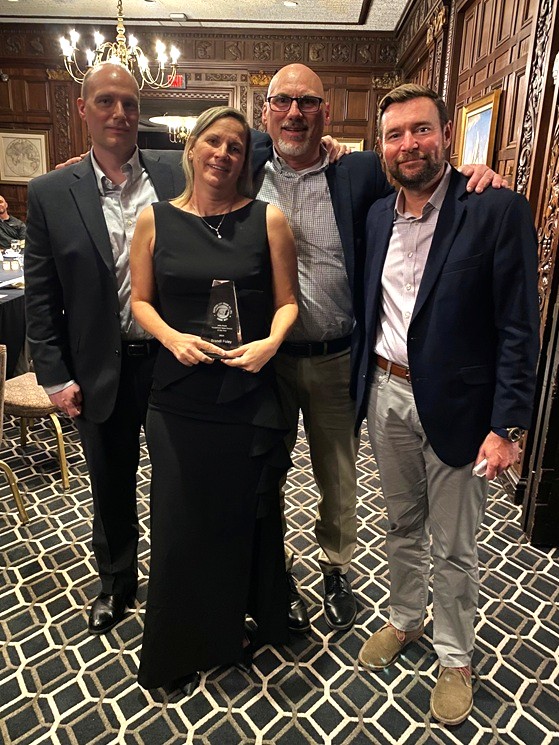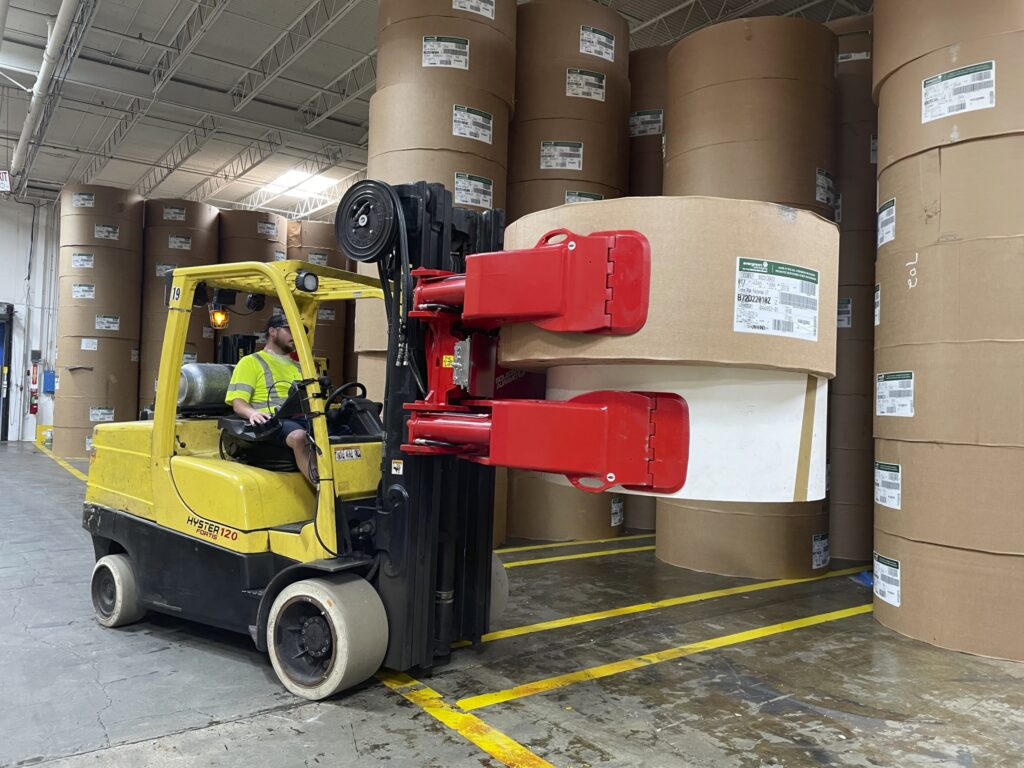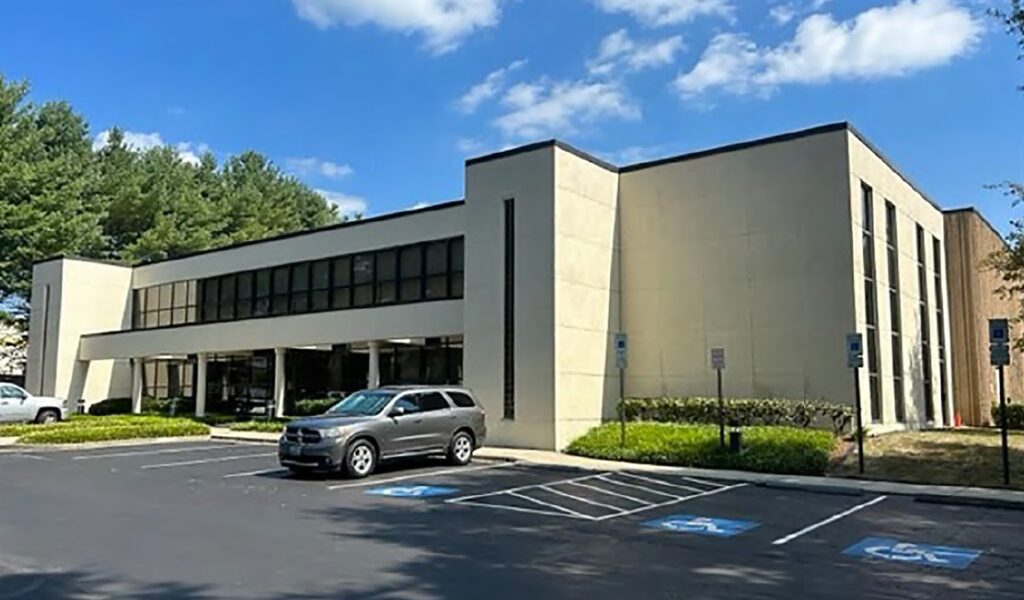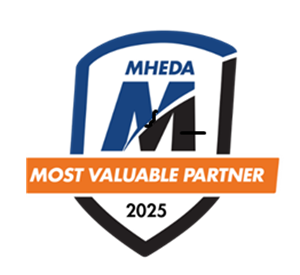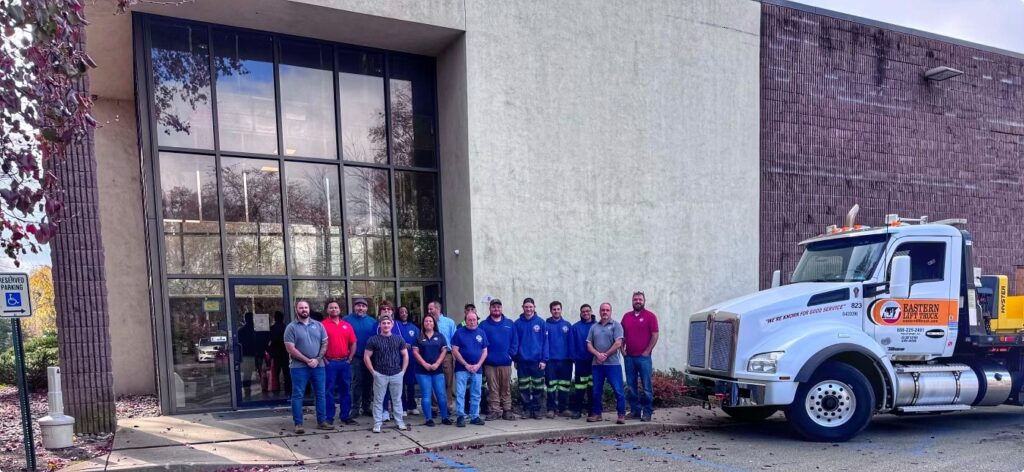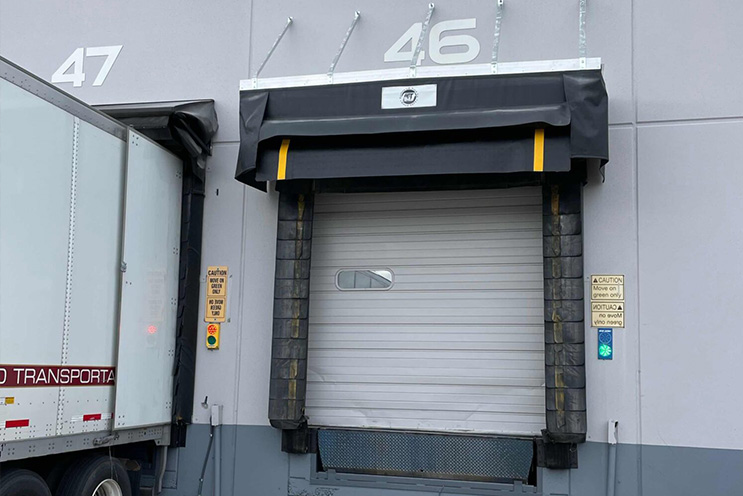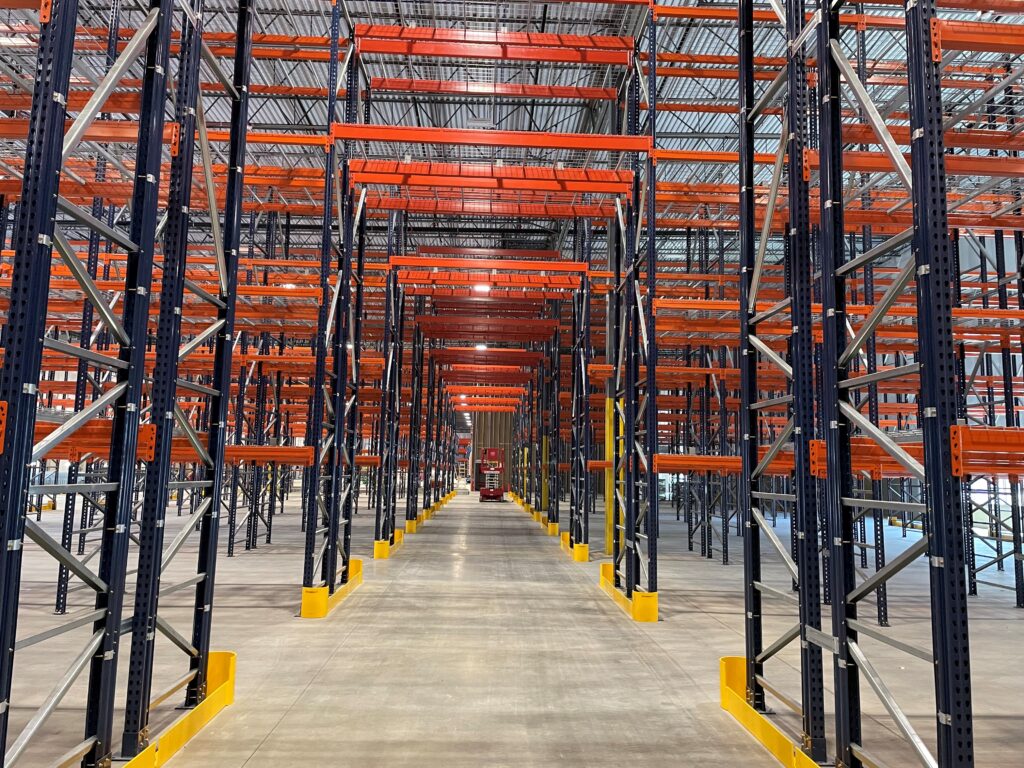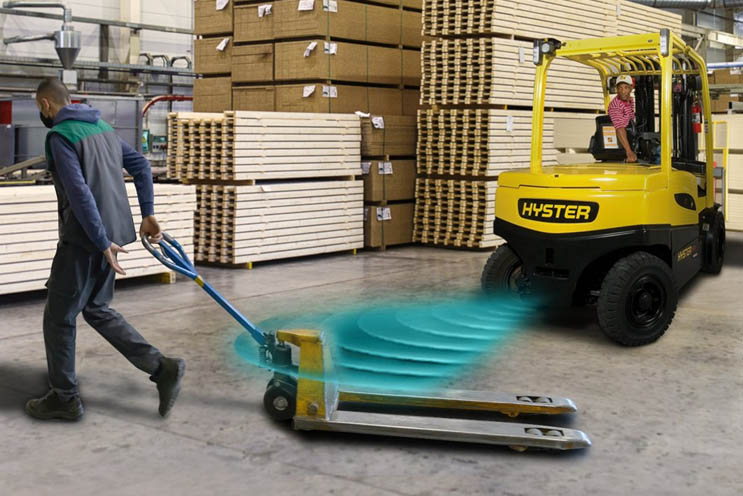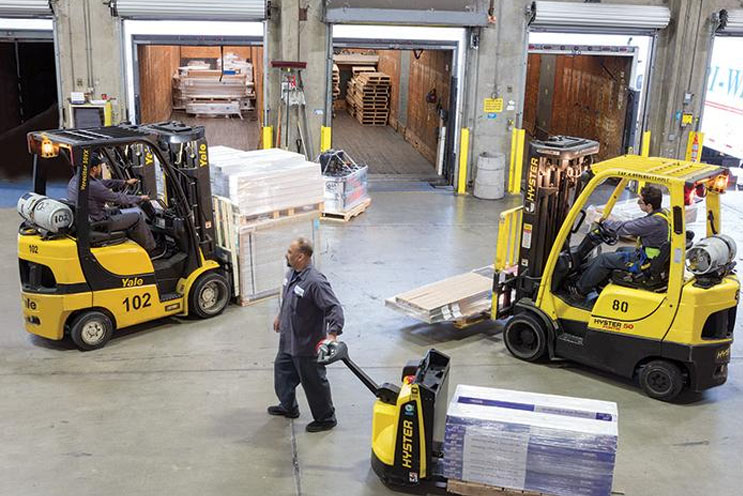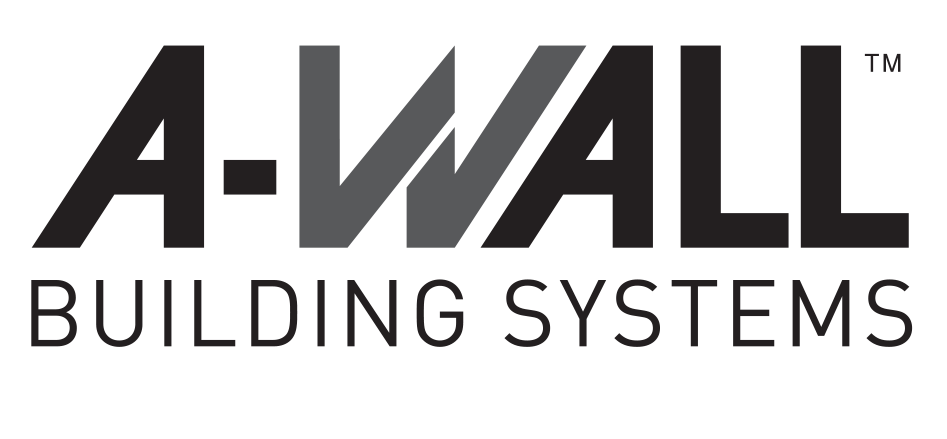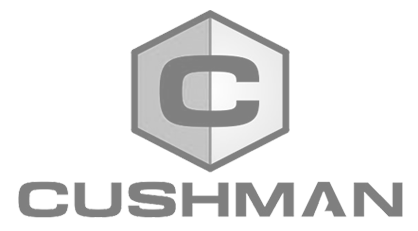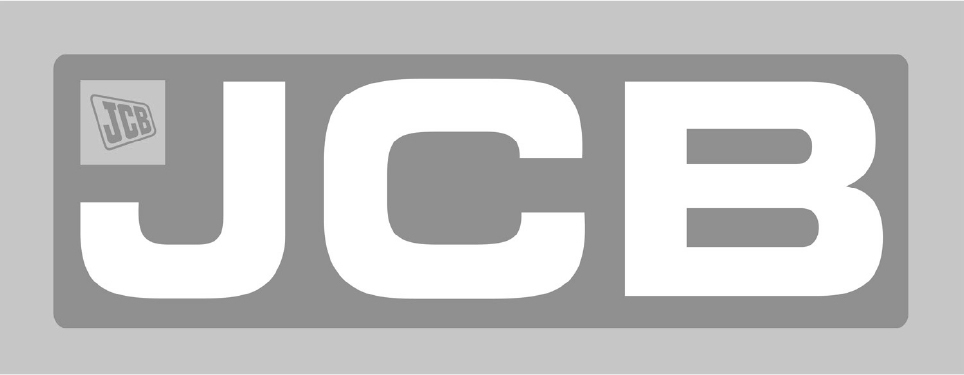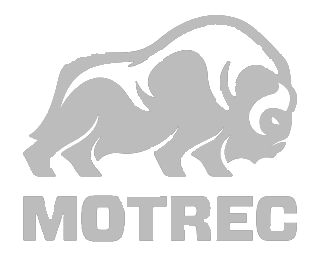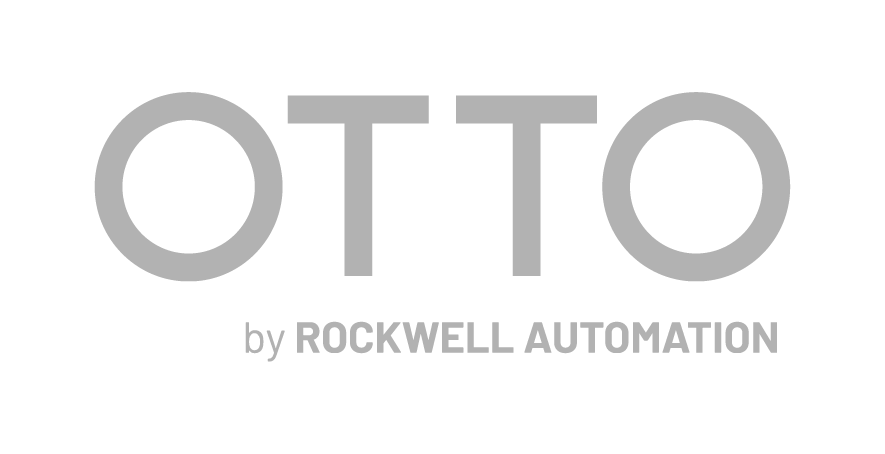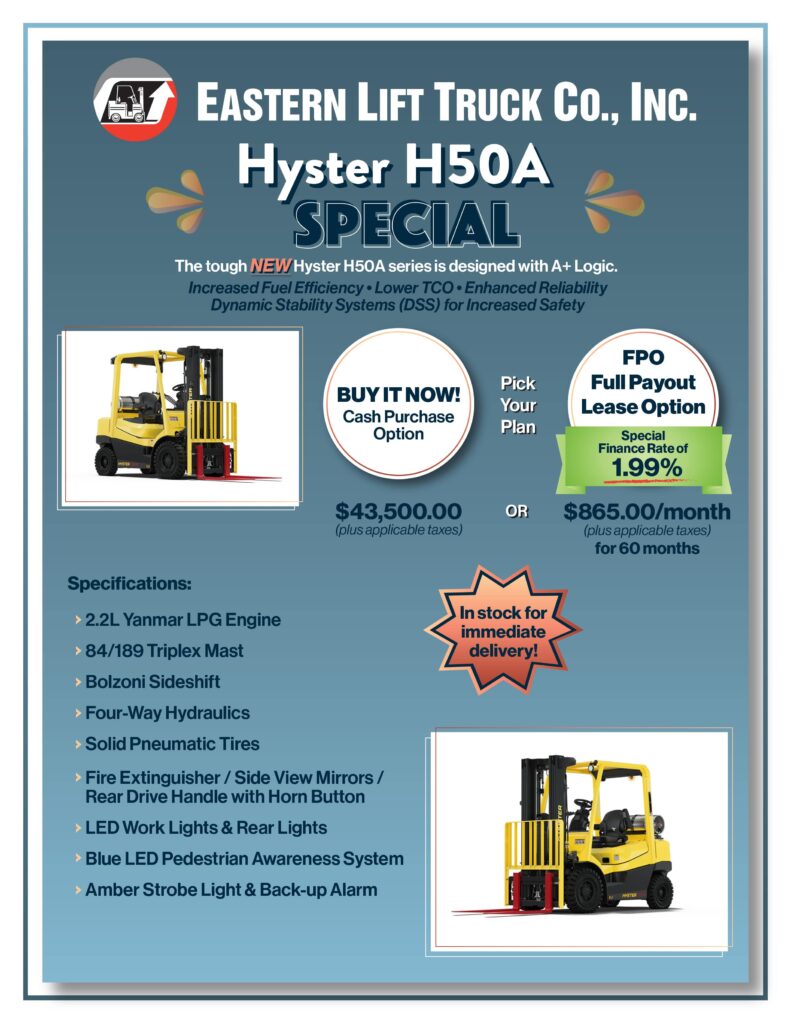2025 Forklift Trends: The Future of Forklift Technology
Forklifts have been around a long time. For example, Hyster and Yale, two brands Eastern Lift Truck Co. represents, have been at the vanguard of lift truck innovation for one hundred years, helping improve the efficiency and productivity of warehouse and other material handling operations around the world. In recent years the forklift market has…
Top ELTC Equipment Salespeople Honored
Last week, our Director of Equipment Sales, Chris Minkiewicz, gathered Senior Executives and his Sales Management Team at the elegant Hotel du Pont in Wilmington, DE, for a celebratory dinner and awards ceremony to honor Eastern Lift Truck Co.’s top equipment salespeople for 2024. Please join us in congratulating Brandi Foley for achieving our Top…
How to Enhance Forklift Capabilities With Attachments and Accessories
As a warehouse owner or manager, you likely depend on forklifts (aka lift trucks) as essential to your operation. Between loading and unloading pallets, stocking shelves and transporting other items, they make a huge difference in your overall productivity and efficiency. However, you many not be as familiar with the different types of “front-end” and…
Eastern Lift Truck Co. Opens New Facility in Upper Marlboro, MD
Eastern Lift Truck Co. (ELTC) is pleased to announce the grand opening of its newest full-service branch location at: 300 Commerce Drive, Upper Marlboro, MD 20774 in the Collington Trade Center, approximately 10 miles east of the Capital Beltway (I-495). With more than 51,000 square-feet of space, the new facility is an exciting upgrade over…
Eastern Lift Truck Co. Earn MHEDA MVP Industry Award for 13th Consecutive Year!
Eastern Lift Truck Co. (ELTC) has been awarded the prestigious Material Handling Equipment Distributors Association (MHEDA) Most Valuable Partner (MVP) Award for a 13th consecutive year! To qualify, ELTC provided evidence of its strong commitment to its customers, employees, and suppliers and satisfied certain criteria, in the following important areas: “The MVP is a prestigious…
Hyster-Yale announces commitment to Build America, Buy America requirements for electric container handling and forklift equipment.
GREENVILLE, N.C. (Dec. 18, 2024) – Hyster-Yale Materials Handling, Inc., announces its plans to fulfill the domestic manufacturing requirements of the Build America, Buy America (BABA) Act for key portions of its product lineup. The maker of Hyster® and Yale® brand forklift trucks and container handling equipment plans to expand its existing American manufacturing with…
Eastern Lift Truck Co. Moves Into Larger Facility in Northern New Jersey.
Eastern Lift Truck Co. recently moved its Lincoln Park, NJ team to a 23,000 square-foot facility just eight miles away at: 219 Changebridge Rd., Montville, NJ 08322. The new location features officeand shop upgrades, more parking, and is near major roads including Routes 80, 46, and 287. Montville Branch Manager Tony Spagnola remarked: “In a…
How to Optimize Loading Dock Efficiency
Loading docks are crucial to warehousing operations. They facilitate the loading and unloading of materials and products and play an important role in creating an efficient flow through the warehouse. However, loading docks have inherent challenges that can impede operations and even threaten worker safety. Optimizing these spaces with the right equipment and technology, along…
Tips for Selecting the Right Pallet Rack for Your Warehouse
A quality pallet racking system can enhance your warehouse’s operational efficiency and space utilization. Many key factors impact the best option for your unique layout and processes. You will need to be thoughtful about your decision to ensure you choose the ideal configuration to match the needs of your facility and enhance daily workflows. Below…
How to Prepare Your Warehouse for an OSHA Inspection
The Occupational Safety and Health Administration (OSHA) plays a central role in establishing and enforcing workplace safety regulations that protect workers. Warehouses are often filled with potential safety hazards — high shelves, heavy machinery and moving equipment can all be dangerous. With so many hazards around, OSHA inspections are a way to ensure every warehouse…
Emerging Trends in the Material Handling Industry
Each year, automation and technology innovations push material handling capabilities into the future. Our interconnected, global market is a highly competitive space. If you want to outperform local and international competition, you need to be on the cutting edge. Understanding emerging trends in the material handling industry can help you boost productivity while keeping costs…
The Top 12 Most Important Safety Tips for Forklift Operators
Forklifts are critical components of many projects, and they are also potentially dangerous pieces of heavy equipment. In 2022, forklifts were related to 73 workplace deaths and nearly 25,000 Days Away From Work, Job Restriction or Transfer (DART) cases. Transportation incidents were the leading cause of all incidents. Protect your team, pedestrians and machinery with…

